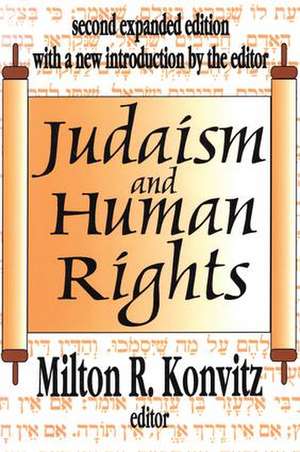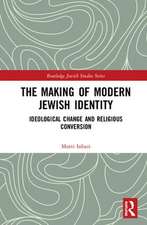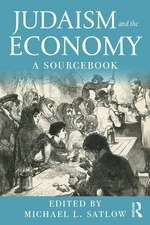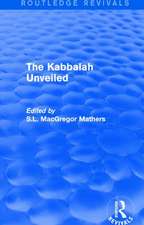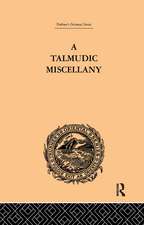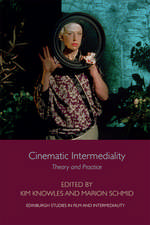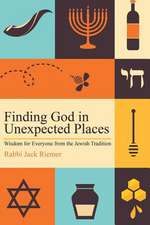Judaism and Human Rights
Autor Carlos Ripollen Limba Engleză Hardback – 4 apr 2018
Preț: 764.20 lei
Preț vechi: 1027.40 lei
-26% Nou
Puncte Express: 1146
Preț estimativ în valută:
146.23€ • 153.08$ • 120.100£
146.23€ • 153.08$ • 120.100£
Carte tipărită la comandă
Livrare economică 05-19 aprilie
Preluare comenzi: 021 569.72.76
Specificații
ISBN-13: 9781138526655
ISBN-10: 1138526657
Pagini: 427
Dimensiuni: 152 x 229 x 31 mm
Greutate: 0.45 kg
Ediția:2
Editura: Taylor & Francis
Colecția Routledge
Locul publicării:Oxford, United Kingdom
ISBN-10: 1138526657
Pagini: 427
Dimensiuni: 152 x 229 x 31 mm
Greutate: 0.45 kg
Ediția:2
Editura: Taylor & Francis
Colecția Routledge
Locul publicării:Oxford, United Kingdom
Cuprins
I: Born Free and Equal; Editor's Note; Man’s Dignity in God’s World; Judaism and Equality; A Common Humanity under One God; Many Are Called and Many Are Chosen; II: The Rule of Law; Editor’s Note; The Bible and the Rule of Law; Kingship under the Judgment of God; The Rule of a Higher Law; III: The Democratic Ideal; Editor’s Note; Judaism and the Democratic Ideal; Foundations of Democracy in the Scriptures and Talmud; Democratic Aspirations in Talmudic Judaism; IV: Freedom of Conscience; Editor’s Note; Conscience and Civil Disobedience in the Jewish Tradition; Freedom of Religion-Absolute and Inalienable; The Right of Dissent and Intellectual Liberty; V: Life, Liberty, and the Pursuit of Happiness; Editor’s Note; The Good Life; The Right of Privacy; There Shall Be No Poor; VI: The Earth Is the Lord’s; Editor’s Note; Man as Temporary Tenant; Do Not Destroy!; Ecology and the Jewish Tradition; VII: Pursuit of Peace; Editor's Note; The Vision of Micah; VIII: Human Rights in an Israeli Context; Religious Freedom and Religious Coercion in the State of Israel; In God’s Image: The Religious Imperative of Equality Under Law; The Values of a Jewish and Democratic State: The Task of Reaching a Synthesis
Descriere
Areligion or a culture like Judaism, at least three thousand years old, cannot be expected to be all of one piece, homogeneous, self-contained, consistent, a neatly constructed system of ideas. If Judaism were that, it would have died centuries ago and would be a subject of interest only to the historian and archaeologist.
